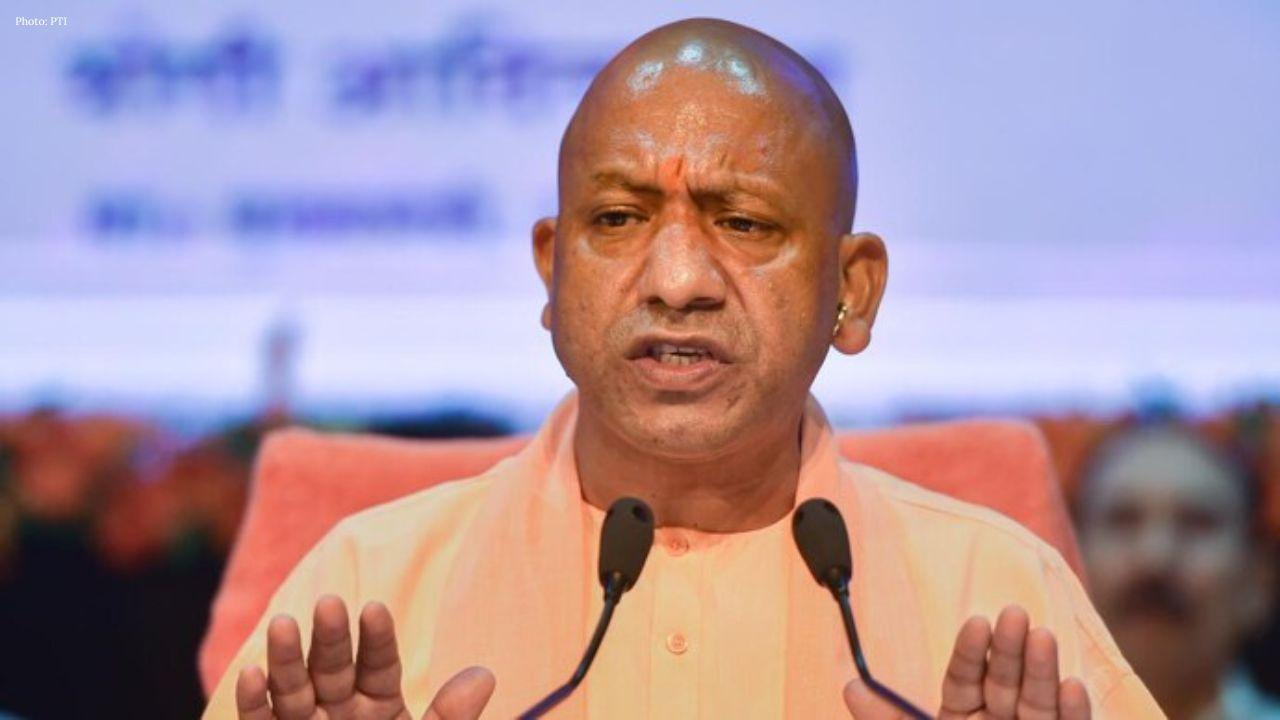You have not yet added any article to your bookmarks!

Join 10k+ people to get notified about new posts, news and tips.
Do not worry we don't spam!

Post by : Anis Farhan
In today’s digital age, verifying identities online has become a critical concern. From accessing banking services and government portals to logging into social media platforms, identity verification touches nearly every aspect of our lives. However, centralized identity systems often expose users to risks such as data breaches, fraud, and privacy violations. Enter decentralized identity—an emerging concept powered by blockchain technology, offering a secure, private, and user-controlled approach to online verification.
By shifting control from centralized authorities to individuals, decentralized identity promises to redefine digital trust, making identity management safer, more transparent, and universally interoperable. This article explores the technology, its implications, adoption trends, and challenges, providing a comprehensive understanding of how blockchain could transform online verification.
Decentralized identity (DID) is a framework in which individuals or entities own and control their digital identities without relying on a central authority. Unlike traditional identity systems, where governments or corporations store and manage personal data, DID systems leverage blockchain or distributed ledger technology to provide a tamper-proof, transparent record of identity credentials.
Each user has a cryptographic key pair—a public key visible on the blockchain and a private key controlled solely by the user. This allows them to share verifiable credentials without exposing sensitive information unnecessarily. For instance, a user could prove their age without revealing their birth date or show citizenship without disclosing a full government ID.
The core principles of decentralized identity are user control, privacy, and interoperability. Users can manage their identities across multiple platforms, reducing dependency on any single organization while maintaining security and verifiability.
Blockchain plays a central role in decentralized identity systems. Its inherent features—immutability, transparency, and decentralization—address many weaknesses of traditional identity systems:
Tamper-Proof Credentials
Each credential or verification recorded on a blockchain cannot be altered retroactively. This ensures authenticity and trust, eliminating the need for intermediaries to verify documents repeatedly.
Enhanced Privacy
Zero-knowledge proofs and selective disclosure mechanisms allow users to verify specific aspects of their identity without revealing unnecessary data. For example, an online service can confirm a user is over 18 without knowing their exact date of birth.
Interoperability Across Platforms
Blockchain-based identity systems are often standardized, allowing credentials issued by one platform to be recognized across different services. This reduces duplication and simplifies verification processes globally.
Reduced Fraud
By decentralizing identity verification, blockchain reduces risks like identity theft, phishing attacks, and fraudulent accounts. Users retain ownership of their credentials, and no single central database becomes a target for attackers.
The adoption of decentralized identity is not just theoretical—several sectors are already exploring its potential.
Financial institutions face rigorous compliance requirements under Know Your Customer (KYC) regulations. Blockchain-based identities can streamline KYC processes, allowing customers to provide verifiable credentials without repeatedly submitting personal documents. This not only improves efficiency but also enhances privacy and reduces operational costs.
Countries like Estonia and Canada are experimenting with digital identity programs leveraging blockchain. Citizens can securely access government portals, vote online, and receive public services without relying on centralized databases, reducing the risk of data breaches and identity fraud.
Decentralized identity systems can allow patients to manage their health records securely. Hospitals, clinics, and insurance companies can verify credentials without exposing sensitive medical data, maintaining privacy while ensuring accurate verification.
Students and professionals can hold verifiable diplomas, certificates, or work credentials in a blockchain-based wallet. Employers and educational institutions can authenticate these credentials without contacting the issuing organization directly.
Digital travel credentials, including visas, vaccination records, or boarding passes, can be issued as verifiable credentials on a blockchain. Travelers can prove eligibility without sharing excessive personal information, simplifying border control processes and enhancing security.
The concept of decentralized identity has gained significant traction globally. The World Wide Web Consortium (W3C) has set standards for decentralized identifiers (DIDs) and verifiable credentials, enabling interoperability across different networks.
Major tech companies and consortiums are investing in DID systems:
Microsoft has launched its Identity Overlay Network, allowing users to control verifiable credentials.
IBM is integrating DID solutions into enterprise services, enabling secure workforce identity management.
Hyperledger Indy and Sovrin Foundation are leading open-source blockchain-based identity frameworks.
Several governments are exploring pilots:
Canada is testing blockchain-based identity wallets for citizen services.
EU nations are exploring decentralized digital ID frameworks for cross-border authentication.
India has expressed interest in integrating decentralized verification concepts into its digital identity infrastructure.
These developments indicate a shift toward user-centric, secure, and privacy-respecting identity systems worldwide.
User Empowerment
Individuals have full control over their identity data, reducing dependency on centralized authorities.
Privacy and Security
Sensitive data is shared selectively, and tamper-proof blockchain records reduce the risk of fraud.
Cost Efficiency
By minimizing repeated verification and administrative overhead, organizations save time and resources.
Global Interoperability
Users can carry verifiable credentials across borders and platforms seamlessly.
Fraud Prevention
Decentralized systems make identity theft and data manipulation significantly harder.
Despite its promise, decentralized identity faces several challenges:
Technical Complexity: Blockchain and cryptography can be difficult for mainstream users to navigate. User-friendly interfaces are essential.
Regulatory Uncertainty: Governments are still exploring how decentralized identity aligns with legal frameworks and data privacy regulations.
Standardization: While W3C standards exist, global interoperability requires more widespread adoption and consistent protocols.
Recovery Mechanisms: Losing private keys could result in permanent loss of access to one’s digital identity, so secure backup methods are critical.
Adoption Resistance: Organizations and users accustomed to traditional centralized systems may be slow to switch.
The adoption of decentralized identity could revolutionize online verification in several ways:
Frictionless Onboarding: Users could create accounts, verify credentials, and access services instantly, without repetitive paperwork.
Global Travel Simplification: Cross-border verification of passports, visas, and vaccination records could become seamless and secure.
Decentralized Finance (DeFi) Integration: Secure identity verification could unlock new levels of trust and compliance in DeFi platforms.
Smart City Integration: Citizens could authenticate their identity for public services, transportation, and utilities through secure digital wallets.
The ultimate goal is to create a digital ecosystem where trust is built on technology, not central authority, allowing secure, private, and global digital interactions.
Decentralized identity represents a paradigm shift in how online verification is conducted. By placing control in the hands of users and leveraging blockchain’s security features, it promises enhanced privacy, reduced fraud, and greater interoperability across borders. From banking to healthcare, education to government services, decentralized identity is poised to become a foundational element of the digital ecosystem.
As technology matures and adoption increases, it could redefine the relationship between individuals, organizations, and governments, fostering a secure and user-centric digital world. The transition may face challenges, but the long-term potential of decentralized identity to transform online verification is undeniable.
This article is intended for informational purposes only. The technologies, frameworks, and regulatory discussions described are evolving. Readers should consult professional guidance before implementing decentralized identity solutions.










India Says J&K Budget Exceeds Pakistan’s IMF Bailout
India slammed Pakistan at UNHRC, stating J&K’s development budget exceeds Pakistan’s IMF bailout and

UP CM Holds Talks With Ex Japan Economy Minister in Tokyo
Yogi Adityanath met former Japan economy minister Nishimura Yasutoshi in Tokyo to boost UP-Japan coo

Hiroshima Teacher Arrested for Alleged Sexual Assault of Minor
A 37-year-old high school teacher in Hiroshima was arrested on suspicion of sexually assaulting a te

Tokyo Skytree Reopens After Elevator Malfunction Suspension
Tokyo Skytree resumed operations after a three-day closure caused by an elevator failure that trappe

Skiers Rescue Man Buried Under Snow at California Resort
A dramatic rescue at Palisades Tahoe shows two skiers saving a man suffocating under deep snow durin

Sri Lanka Ex-Intel Chief Arrested Over Easter Attacks
Former SIS Chief Suresh Sallay arrested by CID in connection with the 2019 Easter Sunday bombings th